Text
Barbie's White Feminism Problem
WARNING: SPOILERS BELOW! If you haven’t seen Barbie yet and don’t want to be spoiled, please read after you’ve seen the film.
I liked Barbie overall, but it’s hard to praise the film without critique (more on this later). It could have been a generic apolitical movie about a doll coming to life and entering the real world, but it subverted that conventional route and addressed important themes…

View On WordPress
2 notes
·
View notes
Text
Obi-Wan Kenobi Continues a Disturbing Trope for Women of Color Characters
Obi-Wan Kenobi Continues a Disturbing Trope for Women of Color Characters
Promotional poster of Tala Durith, played by Indira Varma.
The following post contains spoilers for Obi-Wan Kenobi, The Clone Wars animated series, the prequel films, and Battlestar Galactica. At the time of this writing, episodes 1-5 of Obi-Wan Kenobi have aired on Disney+.
Edgar Allan Poe once wrote, “The death, then, of a beautiful woman is, unquestionably, the most poetical topic in the…

View On WordPress
#Indira Varma#misogynoir#misogyny#Obi-Wan Kenobi#racism#South Asian women#Star Wars#Steela Gerrera#Tala#The Clone Wars#women of color
4 notes
·
View notes
Text
The Batman Review: A Refreshing and Subversive Take on the Batman Mythos
The Batman Review: A Refreshing and Subversive Take on the Batman Mythos
Minor spoilers ahead:
One of the concerns I had going into The Batman was that it would be too similar to Nolan’s “grounded in reality” approach to the Batman universe. Stylistically, yes, it takes Nolan’s realism even further, but thematically, the film is the complete opposite of the Nolan trilogy, which is the best thing about it. In short, it subverts many of Nolan’s political themes.
I…

View On WordPress
4 notes
·
View notes
Text
The Psychological Depth of Batman Returns
The Psychological Depth of Batman Returns
I’ve been revisiting the Tim Burton Batman films because of all of the recent buzz around Batman (whether it’s for The Batman or Michael Keaton returning to the role in The Flash and Batgirl). My appreciation for Batman Returns grows every time I watch it, and it’s unfortunate that many of its deeper, psychological themes are overlooked by mainstream audiences. I was discussing (arguing, really)…

View On WordPress
#Batman#Batman Returns#Capitalism#Catwoman#Duality#Film commentary#Max Shreck#Michael Keaton#Psychology#Reginald D Hunter#The Penguin#Tim Burton#Trauma
1 note
·
View note
Text
What The Rise of Skywalker Teaches Us About Family (Spoilers)
What The Rise of Skywalker Teaches Us About Family (Spoilers)

Warning: Major SPOILERS ahead for The Rise of Skywalker.
In his acceptance speech for the Irving G. Thalberg Memorial Award in 1991, George Lucas stated, “I’ve always tried to be aware of what I say in my films because all of us who make motion pictures are teachers. Teachers with very loud voices.”
This quote stayed with me ever since I heard it. As an independent filmmaker, it inspired me to…
View On WordPress
0 notes
Photo

The Problems with Aladdin: Orientalism, Casting, and Ramadan Edward Said and Jack G. Shaheen did not do the work they did so that movies like Aladdin would still get made.
2 notes
·
View notes
Text
The Problems with Aladdin: Orientalism, Casting, and Ramadan

Originally posted on Medium.
Edward Said and Jack G. Shaheen did not do the work they did so that movies like Aladdin would still get made.
I say this as someone who has had a complicated relationship with the 1992 Aladdin animated feature. I loved it when I was a kid. For a long time, it was my favorite Disney cartoon. I remember proudly telling white friends and classmates in third grade that Aladdin was “about my people.” Although nothing is said in the movie about Aladdin’s religion, I read him as Muslim.
When I grew older, I read Jack G. Shaheen’s book, Reel Bad Arabs, which analyzes about 1,000 American films that vilify and stereotype Arabs and Muslims. Among these films is Aladdin, which Shaheen reportedly walked out of. Shaheen spoke out against lyrics in the film’s opening song: “I come from a land from a far-away place/Where they cut off your ear if they don’t like your face/It’s barbaric, but hey, it’s home.” Although he convinced Disney to remove the lyrics for the home video release, the final verse was still there: “It’s barbaric, but hey, it’s home.” As a 1993 op-ed in The New York Timeswrote, “It’s Racist, But Hey, It’s Disney.”
In Edward Said’s seminal book, Orientalism (1978), he described orientalism as a process in which the West constructs Eastern societies as exotic, backwards, and inferior. According to Said, orientalism’s otherization of Arabs, Muslims, and Islam provided justification for European colonialism and Western intervention in the Middle East and Muslim-majority countries, often under the pretext of rescuing the people — especially Muslim women — from themselves. In addition to orientalism’s practices of constructing the “Orient” as the West’s “Other,” Said asserted that another major facet of orientalism involves a “western style for dominating, restructuring, and having authority over the ‘Orient.’” In other words, it is not the Arab or Muslim who gets to define themselves, but rather the West does.
There are plenty of excellent and detailed critiques out there about how the original Aladdin is filled with racist, sexist, and orientalist tropes, so there’s very little, if anything, to say that already hasn’t been said. In her extensive report, “Haqq and Hollywood: Illuminating 100 Years of Muslim Tropes And How to Transform Them,” Dr. Maytha Alhassen argues that Hollywood’s legacy of depicting Arabs and Muslims as offensive caricatures is continued in Aladdin, where the main characters like Aladdin and Jasmine are “whitewashed, with anglicized versions of Arabic names and Western European (though brown-skinned) facial features” and speak with white American accents. Alhassen notes the contrast with the “villains, Jafar, and the palace guards” who are depicted as “darker, swarthy, with undereye circles, hooked noses, black beards, and pronounced Arabic and British accents.” In another article, “The Problem with ‘Aladdin,’” Aditi Natasha Kini asserts that Aladdin is “a misogynist, xenophobic white fantasy,” in which Jasmine is sexualized and subjected to tropes of “white feminism as written by white dudes.” Not only does Jasmine have limited agency in the film, Kini writes, but her role in the film is “entirely dependent on the men around her.”
When Disney announced plans to produce a live-action remake of Aladdin, I learned through conversations that the Aladdin story is not even in the original text for Alf Layla wa Layla, or One Thousand and One Nights. It was later added by an 18th century French translator, Antoine Galland, who heard the story from a Syrian Maronite storyteller, Hanna Diyab. Galland did not even give credit to Diyab in his translation. Beyond the counter-argument that “the original Aladdin took place in China,” I am left wondering, how much of the original tale do we really know? How much did Galland change? It’s possible that Galland changed the story so significantly that everything we know about Aladdin is mostly a western, orientalist fabrication. For a more detailed account about the origins of the Aladdin tale, I recommend reading Arafat A. Razzaque’s article, “Who ‘wrote’ Aladdin? The Forgotten Syrian Storyteller.”
Disney has been boasting about how the live-action Aladdin is one of the “most diverse” movies in Hollywood, but this is an attempt to hide the fact that the casting of this film relied on racist logic: “All brown people are the same.” It’s great that an Egyptian-Canadian actor, Mena Massoud, was cast in the lead role, but there’s inconsistency elsewhere: Jasmine is played by British actress Naomi Scott, who is half Indian and half white; Jafar is played by Dutch-Tunisian actor Marwan Kenzari; and Jasmine’s father and a new character, Dalia, are played by Iranian-American actors Navid Negahban and Nasim Pedrad, respectively. The casting demonstrates that the filmmakers don’t know the differences between Arabs, Iranians, and South Asians. We are all conflated as “one and the same,” as usual.
Then there’s the casting of Will Smith as the genie. Whether deliberate or not, reinforced here is the Magical Negro trope. According to blogger Modern Hermeneut, this term was popularized by Spike Lee in 2011 and refers to “a spiritually attuned black character who is eager to help fulfill the destiny of a white protagonist.” Moreover, the author writes that Lee saw the Magical Negro as “a cleaned up version of the ‘happy slave’ stereotype, with black actors cast as simpleminded angels and saints.” Examples of the Magical Negro can be found in films like What Dreams May Come, City of Angels, Kazaam (which also features a Black genie), The Green Mile, The Adjustment Bureau, and The Legend of Bagger Vance. In the case of Aladdin, the genie’s purpose is to serve the protagonist’s dreams and ambitions. While Aladdin is Arab, not white, the racial dynamic is still problematic as the Magical Negro trope can be perpetuated by non-Black people of color as well.
I need to pause for a moment to explain that I don’t believe an Aladdin movie should only consist of Arab actors. Yes, Agrabah is a fictional Arab country, but it would be perfectly fine to have non-Arabs like Iranians, South Asians, and Africans in the movie as well. That’s not the issue I have with the casting, and this is not about identity politics. My problem is that the filmmakers saw Middle Eastern and South Asian people as interchangeable rather than setting out to explore complex racial, ethnic, and power dynamics that would arise from having ethnically diverse characters existing within an Arab-majority society. Evelyn Alsultany, an Associate Professor who was consulted for the film, states in her post that one of the ways Disney tried to justify casting a non-Arab actress for Jasmine was by mentioning that her mother was born “in another land.” However, this seems to have been Disney doing damage control after they received some backlash about Jasmine’s casting. The result is convenient erasure of an Arab woman character. Moreover, the change in Jasmine’s ethnicity does little, if anything, to reduce the film’s problematic amalgamation of Middle Eastern and South Asian cultures. Alsultany writes that “audiences today will be as hard pressed as those in 1992 — or 1922, for that matter — to identify any distinct Middle Eastern cultures beyond that of an overgeneralized ‘East,’” where “belly dancing and Bollywood dancing, turbans and keffiyehs, Iranian and Arab accents all appear in the film interchangeably.”
Other examples of how the film conflates various Middle Eastern and South Asian cultures is highlighted in Roxana Hadadi’s review: “Terms like ‘Sultan’ and ‘Vizier’ can be traced to the Ottoman Empire, but the movie also uses the term ‘Shah,’ which is Iranian monarchy.” Referring to the dance scenes and clothing, she writes they are “mostly influenced by Indian designs and Bollywood styles” while “the military armor looks like leftovers from Ridley Scott’s Kingdom of Heaven.” An intersectional approach to the diverse ethnic communities represented in the film would have made for a more nuanced narrative, but this would have required a better director.
Speaking of the director, it is amazing that, of all people, Disney hired Guy Ritchie. Because if there is any director out there who understands the importance of representation and knows how to author a nuanced narrative about Middle Eastern characters living in a fictitious Arab country, it’s… Guy Ritchie? Despite all of the issues regarding the origin of the Aladdin story, I still believed the narrative could have been reclaimed in a really empowering way, but that could not happen with someone like Guy Ritchie. It’s textbook orientalism to have a white man control the narrative. I would have preferred socially and politically conscious Middle Eastern and Muslim writers/directors to make this narrative their own. Instead, we are left with an orientalist fantasy that looks like an exoticized fusion of how a white man perceives South Asia and the Middle East.
Lastly, I have to comment on how this movie was released during the Islamic holy month of Ramadan. In fact, the film’s release date, May 24th, was just one day before the last ten days of Ramadan, which are considered to be the most important in the month. During Ramadan, Muslims around the world fast — if they are able to — from dawn to sunset every day for 30 days. The time when we break our fast, iftar, typically involves dinner and prayer with family, friends, and/or the community. But Ramadan is more than just about fasting, it’s a time of self-reflection, compassion, and strengthening our connection with Allah, our loved ones, and community. I don’t believe Disney released Aladdin during Ramadan intentionally. If anything, I think the film’s release date is reflective of how clueless and ignorant Disney is. It’s so ridiculous that it’s laughable.
I don’t want to give the impression that Muslims don’t go out to the movies during Ramadan. Of course there are Muslims who do. I just know a lot who don’t— some for religious reasons and some, like myself, for no other reason than simply not having enough time between iftar and the pre-dawn meal, sehri (I mean, I could go during the day, but who wants to watch a movie hungry, right?). Even Islamophobic Bollywood knows to release blockbuster movies on Eid, not towards the end of Ramadan.
But this isn’t about judging Muslim religiosity during the holy month. No one is “less” of a Muslim if they are going to the movie theater or anywhere else on Ramadan. My point is that Disney has not shown any consideration for the Muslim community with this movie. They did not even consider how releasing the film during Ramadan would isolate some of the Muslim audience. It’s clear that Disney did not make efforts to engage the Muslim community. Of course, there is nothing surprising about this. But you cannot brag about diversity when you’re not even engaging a group of people that represents the majority of the population you claim to be celebrating! In response to Shaheen’s critiques of the original Aladdin cartoon, a Disney distribution president at the time said Aladdin is “not just for Arabs, but for everybody.” But this is a typical dismissive tactic used to gloss over the real issues. No doubt Disney will follow the same script when people criticize the latest film.
I don’t have any interest in this movie because it failed to learn anything from the criticism it received back in 1992. The fact that a 1993 op-ed piece titled, “It’s Racist, But Hey, It’s Disney” is still relevant to the live-action version of a film that came out 27 years ago is both upsetting and sad at the same time. As I said earlier, Edward Said and Jack Shaheen did not exhaustively speak out against orientalism, exoticism, and vilification to only see them reproduced over and over again. Of course Disney refused to educate themselves and listen to people like Shaheen— their Aladdin story was never meant for us.
20 notes
·
View notes
Text
Supergirl, Superman, and Kryptonian Identity
Supergirl, Superman, and Kryptonian Identity

Warning: Spoilers below for Supergirl seasons 1-4, including the Elseworlds crossover episodes!
If you had asked me who my favorite superhero was three years ago, I would answered without hesitation, “Superman.” When people complained that the man of steel is “too overpowered,” I would encourage them to look beyond his superpowers if they truly wanted to appreciate him. Integral to his story is…
View On WordPress
#Arrowverse#Clark Kent#identity#Kara Zor-El#Lois and Clark#model minority#race and gender in media#Smallville#Supergirl#Superman#The CW
0 notes
Text
First Impressions of Zari Tomaz, Muslim American Superhero on DC's Legends of Tomorrow
First Impressions of Zari Tomaz, Muslim American Superhero on DC’s Legends of Tomorrow

As you may guess, I’m very behind on the CW DC TV shows (aka the “Arrowverse”). I admittedly stopped watching Arrow after season 3 (more on that later), but continued to watch The Flash, Supergirl, and Legends of Tomorrow. As excited as I was to hear about a Muslim American superhero character being introduced on the show, the past year was quite busy for me.
I’m currently watching season 3 of…
View On WordPress
1 note
·
View note
Text
Despite Flaws, Aquaman Is an Enjoyable Cinematic Experience
Despite Flaws, Aquaman Is an Enjoyable Cinematic Experience
This post comes as a surprise to me because I never thought I’d write something positive about an Aquaman movie, let alone any movie in the DC Expanded Universe (DCEU). I grew up as a fan of DC comics and I consider Superman to probably be my favorite superhero of all time, but I hated what Zack Snyder did to the character in 2013’s Man of Steel. I didn’t like Batman v Supermanand just about…
View On WordPress
0 notes
Text
How to Avoid Movie Spoilers: Tips for Movie Fans and Critics
How to Avoid Movie Spoilers: Tips for Movie Fans and Critics

With Avengers: Infinity War officially releasing tonight in the U.S., I’ve been doing my best to navigate social media without running into any spoilers. A recent Forbes article (which I will not link to) apparently listed every spoiler in the film despite the fact the movie is not even out yet! My sentiments on this align with film critic John Campea, who posted a response on his YouTube channel
View On WordPress
1 note
·
View note
Text
Rumi, Bulleh Shah, and The Last Jedi

Parh parh ilm hazaar kitaaban qaddi apnay aap nou parhiya naee... Yes, you have read thousands of books But you have never tried to read your own self... ~ Bulleh Shah There is a moment in The Last Jedi that touches upon the theme of this beautiful poem by Punjabi poet Bulleh Shah. Before I continue, I have to warn that MAJOR SPOILERS are ahead! Don’t read further if you haven’t seen The Last…
View On WordPress
0 notes
Text
What I Liked and Didn't Like About The Last Jedi (Spoilers!)
What I Liked and Didn’t Like About The Last Jedi (Spoilers!)

Wow. Where does one begin with this movie? Before I continue, I have to emphasize that there will be heavy SPOILERS throughout this post. Don’t continue further if you haven’t seen the movie yet. Overall, I loved The Last Jedi. The film was filled with so many amazing moments and twists. It kept you on the edge of your seat. For me, Vietnamese American actress Kelly Marie Tran as Rose Tico is a…
View On WordPress
#dark empire#george lucas#kelly marie tran#Luke Skywalker#people of color#rose tico#Star Wars#star wars expanded universe#The Last Jedi#women of color
0 notes
Text
“Justice” League?

Amazing how a movie called Justice League is filled with actors and directors who are beyond problematic. Posting with links:
Ben Affleck (Batman) - sexual harassment, groping women
Gal Gadot (Wonder Woman) - Zionist, warmonger
Jason Momoa (Aquaman) - joked about rape
Ezra Miller (The Flash) - co-directed an awful short film that sympathized with Darren Wilson
Joss Whedon (director of reshoots) - faux "male feminist"
Zack Snyder (director) - don't even get me started
Yay these are the people playing iconic heroes.
#Justice League#Ben Affleck#Gal Gadot#Ezra Miller#Jason Momoa#Joss Whedon#Zack Snyder#Racism#Misogyny#Sexism#Zionist
1 note
·
View note
Text
What’s happening with directors at Lucasfilm
Here’s a breakdown on what’s happening behind-the-scenes at Lucasfilm:
Kathleen Kennedy = Darth Vader
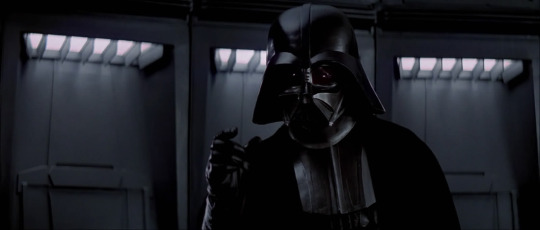
Gareth Edwards = General Motti (choked and reprimanded, but played by the rules)
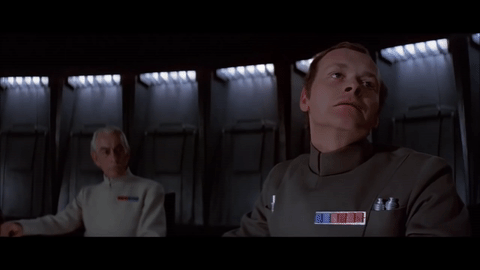
Phil Lord and Chris Miller = Admiral Ozzel (cocky, arrogant, unapologetic)
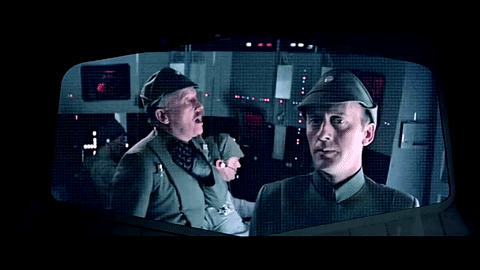
Colin Trevorrow = Captain Needa (overconfident, failed last mission miserably)
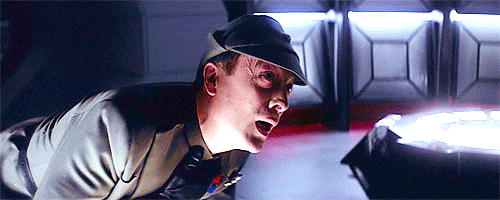
Ron Howard = Commander Jerjerrod (obedient, but given a tight schedule)
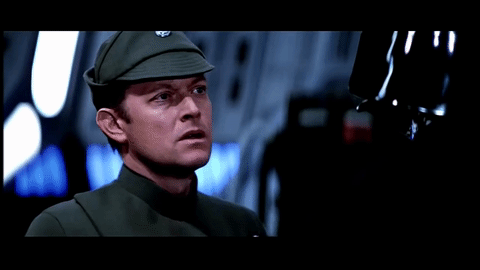
Tony Gilroy = Boba Fett (dependable, for hire, backup plan when the job doesn’t get done)
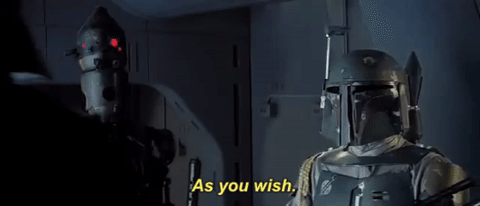
Rian Johnson = General Veers (trustworthy, daring, exceeds expectations)
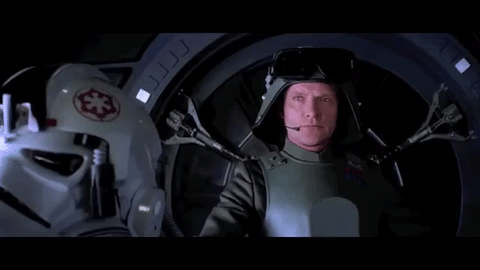
J.J. Abrams = Admiral Piett (loyal, safe, follows orders)
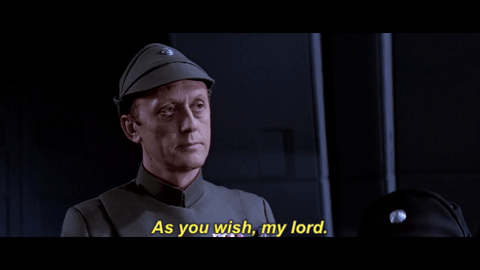
#star wars#kathleen kennedy#JJ Abrams#rian johnson#colin trevorrow#lucasflim#star wars directors#star wars episode 8#star wars episode 9#gareth edwards#ron howard#tony gilroy
2 notes
·
View notes
Text
JJ is altering the deal
Wait, JJ, I thought you said you were done making sequels and wanted to focus only on making original material??
JJ Abrams:

0 notes
Text
Yes, We Need an Obi-Wan Standalone Movie
Yes, We Need an Obi-Wan Standalone Movie

As reported in The Hollywood Reporter, a standalone Obi-Wan film is in early development at Lucasfilm. Academy Award-nominated director Stephen Daldry (Billy Elliot, The Hours) is currently in talks to director the film. To put it bluntly, I was ecstatic when I heard this news. Obi-Wan is my favorite character in the Star Wars universe and I have been waiting for them to announce a standalone…
View On WordPress
#Bonnie Piesse#Darth Vader#Ewan McGregor#Hayden Christensen#Ian McDiarmid#Joel Edgerton#Liam Neeson#Obi-Wan film#Obi-Wan Kenobi#Obi-Wan spin-off#Qui-Gon Jinn#Rey#Star Wars#Star Wars spin-off
0 notes